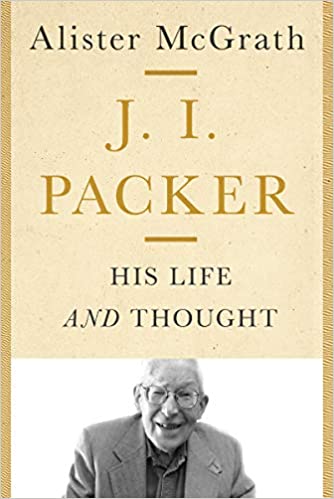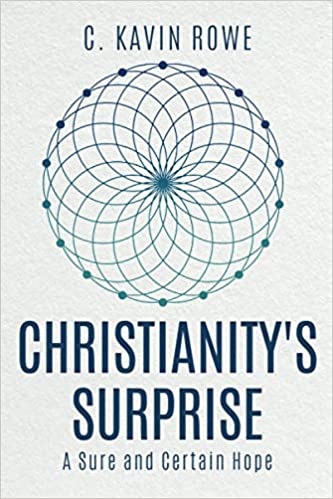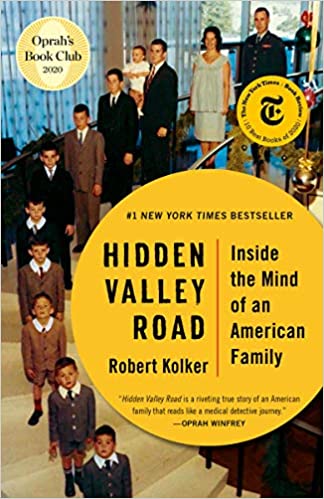Bill on Books: May 2021
One of the tasks that I enjoy is ordering new titles for the store. In a year I pour through hundreds of publisher catalogues as well as reading thousands of reviews published in New York Review of Books, The Times Literary Supplement, Christianity Today, New York Times Book Review, First Things, Englewood Review of Books, plus the endless book mentions on blogs, in op-ed columns, word-of-mouth, and it goes on. The end result is that here at Regent Bookstore it is Christmas every day and regular shipments of books arrive! All this reading tends to give a bookstore buyer knowledge that is a mile-wide and hopefully a little more than an inch deep. In thinking on this I have decided to start sharing short reviews under the heading of Three Inch Reviews. I have spent years in close proximity to so many titles that I have not actually read even if having an acquaintance with many of them, and even readily recommending them. In this last part of my bookselling career I am thinking it would be good to share some of this knowledge with brief summaries. Here is my latest installment.

In July 2020, James Innell Packer departed this life. The theologian Alister McGrath, a friend of Packer, has provided a guide to his teaching career and the central themes of his work. Born in Gloucester, the son of a railway clerk and grandson of a pub owner who drank too much of his earnings, Packer was an unlikely candidate for scholar and theologian of the Church. But after being grievously injured when struck by a bread truck at age seven, his life was bent towards study, especially after being personally mentored by his school headmaster. An Oxford scholarship was the result. More importantly, Packer underwent a Christian conversion at age eighteen. A discovery of the writings of the Puritans turned his life towards theology and ordination as an Anglican priest.
For Packer, theology was not an abstract discipline in which the theologian was above the Church; instead it is a devotional discipline that is marked by the relational activities of trusting, loving, worshipping, obeying, serving and glorifying God. Knowing God is Packer’s early classic. Written in Puritan “plain style,” it is a book for “travellers” that deals with “traveller’s questions.” In later years Packer stressed the need for catechism in the church; we all tend to go off track unless collectively trained in “the significant old.” Eventually his eyesight failed and Packer lost the ability to read. Hence his last writings engaged the topic of human weakness and aging and how the Christian faith is able to “create and sustain a life of hope.” His was a life well-lived to the end. Why not “take and read” Jim’s favourite book, Pilgrim’s Progress?
Available for in-store purchase only.

Today Christianity has become all too familiar, even for the devout. Western culture over two millennia is permeated by the legacy of this faith. In this slim volume the Duke University New Testament scholar, Kavin Rowe, drives home the point that in our day, “Christianity is at one and the same time here and gone, familiar and forgotten.” Back in the first century Greco-Roman world, Christianity landed as a complete, unexpected surprise. The focus of the early Christians was on Jesus. This focus on a single Jew was historically explosive. In three chapters Rowe aims to show what the surprise of Christianity originally was and still can be: the story of everything, the human, and institutions.
First, Christians discovered that they had a place in the story of everything because of the surprise of the crucifixion and resurrection of Jesus. Second is the question of what it means to be human. For the early Christians the startling and original answer to this question was that Jesus of Nazareth is the human. This is in contrast to the modern narrative of the “autonomous self.” This view of Jesus as the “true human” had profound implications for how Christians treated other humans; to love their neighbour was Christological. In order to deal with the reality of sin in the human image of God, we must undergo transformation into the image of God. Third is the concern with how this neighbour ethic or posture was lived out by the Church in its “social extensions” or institutions that were required for the early Church to sustain its vision of what it meant to be human. Christians carried with them a new attitude towards dying, accepting the possibility of persecution and martyrdom. They ministered to the sick and risked catching deadly diseases. They started hospitals and sacrificed possessions. Death was a “rock-bottom reality of human life” and they trusted that they would be raised to eternal life. Rowe himself writes from a place of deep suffering as his wife recently entered hospice after living for years with an incurable disease.
Available for in-store purchase only.

This is the heartbreaking story of a family of twelve children of whom six developed schizophrenia. Don and Mimi Galvin married in 1944, he a handsome military man and she the daughter of an aristocratic family. Don went on to earn a Ph.D. and served as a diplomat. A devout Catholic couple, Mimi and Don raised ten sons and finally two daughters. They seemed the all-American family but within the genes of six of their sons, a time bomb called schizophrenia ticked. The 1970s saw these six sons succumb to the disease that turned the family into a whirlwind of chaos. The two daughters experienced unimaginable abuse and violence at the hands of several of their mentally ill brothers. Mercifully three of the brothers and the two sisters do not suffer from mental illness.
Parallel to the family’s story is that of Lynn DiLisi, a child psychiatrist and medical researcher, who studied the family closely in collaboration with genetic researchers. A medical breakthrough may yet result from their study of the Galvin family and their genetics. There are moments of redemption in this story that is narrated with great compassion. Christians will gain insight into the suffering of so many both within and outside the Church. Hidden Valley Road made the New York Times’ list of the top ten books of 2020.
Available for in-store purchase only.



